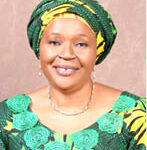Experts have enjoined the federal government and other stakeholders to improve on funding and the latest diagnostic tools for tuberculosis in order to meet the global target of ending the disease by 2030.
They made the call Sunday in Abuja during the Pre-United Nations High-Level Meeting (UNHLM) on TB national stakeholders’ consultation, organized by the Stop TB Partnership Nigeria in collaboration with the National TB and Leprosy Control Programme (NTBLCP).
Vice Chairman, Global Stop TB Partnership, Geneva, Austin Obiefuna, said that Nigeria had made a lot of progress but it needed to be ambitious in rolling out new diagnostic tools and put in more resources for tuberculosis.
He said, “Some countries still use microscopy instead of current tools like the Gene Xpert (which also gives more information on drug resistance) for tuberculosis diagnosis. How do you intend to end TB when you still use moribund tools? There is a need to adapt new approaches because the wrong management of TB is also a big problem.”
- FG to reconstruct homes for Benue IDPs, not Fulani colony – Benue gov
- NiMet predicts 3-day thunderstorm, cloudiness across Nigeria
He also said Nigeria had recorded progress in the area of case finding, treatment and leadership and governance for TB.
According to him, the United Nations High-Level Meeting (UNHLM) is one of the highest decision-making bodies that brings heads of state together to make declarations on TB adding that it is those declarations that we will use to hold political leaders accountable as well as the adaptation in the various countries.
He said Nigeria and other countries needed to adapt the declarations and find moderate ways of interpreting them so that people can understand, and know how to implement them.
Executive Secretary, Stop TB Partnership Nigeria, Mayowa Joel, said Nigeria made progress between 2018 when the first UNHLM on TB was held and the upcoming one holding on the 22nd of September 2023.
However, he said it might not translate to Nigeria being able to end TB by 2030 because “we need more resources to intensify and concretize the successes recorded.”
 Join Daily Trust WhatsApp Community For Quick Access To News and Happenings Around You.
Join Daily Trust WhatsApp Community For Quick Access To News and Happenings Around You.


